Conference sector continues to suffer
Updated: 2013-06-25 07:42
By Wang Zhuoqiong (China Daily)
|
||||||||
Revenues fall by 16.4 percent on tightening of luxury spending
Hospitality businesses in China have suffered from a sharp drop in revenues, with conference-related activity most seriously affected by the government's policies to curb luxury spending of public funds, an industry report has found.
Government-funded conferences revenues are reported to have dropped a dramatic 37.4 percent, according to the 2013 China Hotel Development Report released by the China Hotel Association, but with austerity being officially encouraged, demand for mid-ranged hotels has risen.
The survey, reported by China Business News, found that in the first four months, total revenue for the hospitality industry fell 16.43 percent compared with a year ago, and revenue per available room was hit by a fall of 9.57 percent.
Han Ming, the association's director, said that the government crackdown, coupled with a slowdown in domestic consumption, had combined to hit many in the industry.
Meanwhile, many in the sector have also had to deal with rising labor costs, rents and energy costs, which have put a further squeeze on profits.
The report showed that in the first four months of the year, catering and conference-related spending were down 27.83 percent compared with the same period last year, with catering on its own being hit by 30.31 percent.
Hotels reported that room sales were down 23.25 percent, during the period.
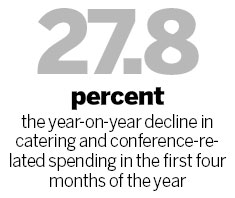
The slashing of government spending meant that in the first four months, a huge 64 percent of conferences held in hotels were by corporate clients, with just 13 percent ordered by government organizations, which used to be the major buyers.
The number of government meetings dropped 37.94 percent year-on-year, and larger-scale meetings - catering for between 300 and 500 delegates - were down 81.2 percent.
The association report showed that while conferences got cancelled, wedding bookings have seen a growth of 9.48 percent in revenue compared with that of last year.
Amy Huang, marketing executive at Ariva Hotels and Service Apartments in Beijing, told China Daily that the mid-ranged hotel in the capital's central business area, had seen very few orders for conferences and meetings this year.
To boost its business, Ariva has opened a new hall to cater for more weddings business, and Huang said the move had been a success, with full weddings bookings this year.
And while some of the larger conference hotel venues have struggled, mid-ranged hotels said that being able to provide smaller-scale function rooms, conferences and catering facilities have proved popular for customers on tighter budgets.
Bruce McKenzie, senior vice-president of operations, Greater China and Mongolia for Hilton Worldwide said it has had to adapt fast to the changing market conditions.
"We have had to expand our customer base, with less business coming from government departments, by coming up with more innovative concepts to attract new customers, for instance in what we offer in our restaurants," said McKenzie.
He added he was "confident that any impact on the industry will be short-lived as business will return but it will be for more business-related activities," McKenzie said.
The US hotelier has introduced its mid-ranged brand Hilton Garden Inn to China next year to grab a larger share of the rapid growing market for business travelers.

 S African worries about Mandela's condition
S African worries about Mandela's condition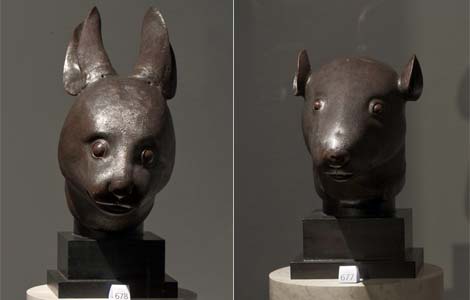
 Looted relics to return home this week
Looted relics to return home this week
 Astronauts go out of Shenzhou X's return capsule
Astronauts go out of Shenzhou X's return capsule
 Djokovic, Williams, and China's Li win openers
Djokovic, Williams, and China's Li win openers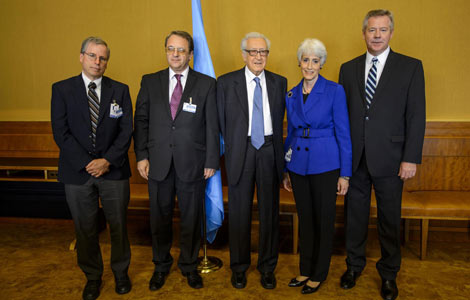
 Russia, US disagree plan for Syria talks
Russia, US disagree plan for Syria talks
 Cooling off, the traditional way
Cooling off, the traditional way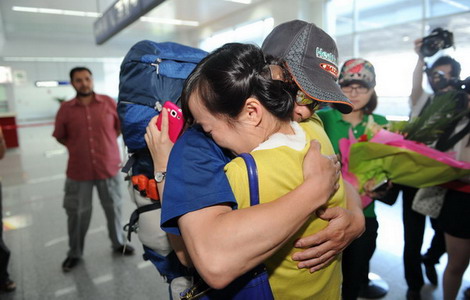
 Surviving climber safe at home
Surviving climber safe at home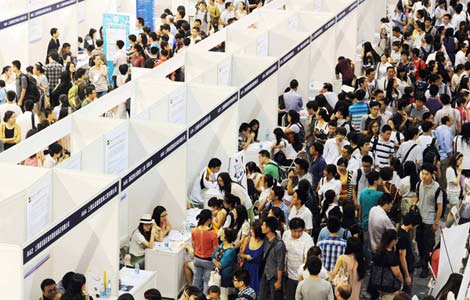
 Warning on college majors
Warning on college majors
Most Viewed
Editor's Picks

|

|

|

|

|

|
Today's Top News
US Supreme Court to rule on gay marriage
China to launch new generation rockets
Shenzhou X spacecraft mission a success
China can fix credit crunch: ADB
Obama targets global warning
US-China agree to boost corporate transparency
New canal a lifeline for energy
Global rating firm to rival 'Big Three'
US Weekly

|

|







